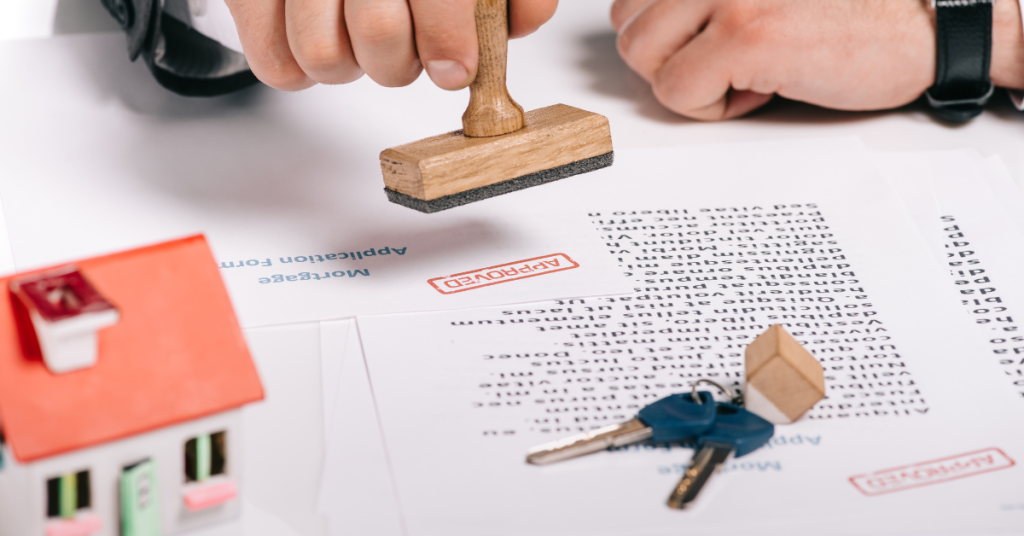Are you a military veteran or active service member considering real estate investment? If so, you may have wondered if you can utilize a VA loan for investment property.
With the vast benefits that VA loan offers, such as zero down payment options and lower interest rates, it’s no wonder many veterans and service members are curious about whether they can leverage these unique home loan offerings for investment purposes.
In this article, we’ll dive into the world of VA-backed loans and how they might help you enter the property investment arena, while also exploring their limitations and possible alternative financing options. So, strap in and get ready to unlock the potential of VA loans for investment property!
Understanding the VA Home Loan
Imagine a VA loan as a winning lottery ticket from the Department of Veterans Affairs (VA). They’ve seen your service and said, “Hey, we appreciate you.” So, they back these loans, which means banks and mortgage companies can’t wait to pass them off to you with lower interest rates and better terms than others can get.
If you’re wondering how VA loans stack up against other mortgage options like conventional and FHA loans, check out the table below for a quick, hassle-free comparison of their features:
| Feature | VA Loans | Conventional Loans | FHA Loans |
|---|---|---|---|
| Down Payment | No down payment required | Typically 3%-20% | 3.5% minimum |
| Interest Rates | Lower | Vary | Generally lower |
| Mortgage Insurance | Not required | Required if down payment is less than 20% | Required irrespective of down payment |
| Credit Requirements | Flexible | Stricter | Flexible |
| Loan Limits | Set by VA and vary by county | Set by the Federal Housing Finance Agency (FHFA) | Set by the Federal Housing Administration (FHA) |
| Debt-to-Income Ratio (DTI) | Typically more lenient | Usually stricter | More lenient limits |
Benefits of VA Mortgage Loans

A VA home loan come with several advantages over traditional mortgage loans, including:
- No down payment (up to the conforming loan limit)
- Lower interest rates
- No private mortgage insurance (PMI)
- Flexible credit & income requirements
- Limited closing costs & reduced funding fees
Qualifying for a VA Loan Program
You’re probably thinking, “Sounds great, but what do I need to do to get my hands on one of these loans?” It’s as easy as getting a Certificate of Eligibility (COE). This is just a fancy piece of paper that says you’ve served enough time in uniform. You can get one online, by mail, or through your lender.
Obtaining the COE
To get a COE, you need to show that you’ve served the minimum required amount of time in the military. Here’s how that breaks down:
- 90 consecutive days if you served during wartime
- 181 consecutive days during peacetime
- Six solid years in the National Guard or Reserves
It’s as if Uncle Sam himself is saying, “You’ve done your part, now let’s make those real estate dreams come true.”
Applying for a COE
And getting your COE? It’s a walk in the park. You can apply:
- Online
- By mail
- Directly through your lender
Just fill in the blanks, click submit, or seal that envelope. Having worked with investors and their unique financing needs, I’ve successfully helped many secure VA loans for their investment properties. And voila! You’re one giant leap closer to your dream of property ownership.
Other Factors for VA Loan Qualification
Hold your horses, though. There are a few more steps to this dance. Your lender will want to check out a few other things before handing over that loan:
- Credit score: Don’t worry if it’s not perfect. VA home loans are known for their flexibility.
- Income: You’ll need a steady, verifiable income. But remember, they have generous debt-to-income ratios.
All in all, even if you’ve had a financial stumble or two in the past, you’re not out of the race. A steady job, a decent credit score, and your trusty COE in hand, and you’re off to the races.
Qualifying for a loan isn’t about running a gauntlet or navigating a labyrinth. It’s a clear, straight path designed to make homeownership within reach for those who’ve served our great nation. After all, isn’t it about time your service paid you back?
How to Use a VA Loan for an Investment Property

Loans are great for buying your own house, but can they be used to purchase an investment property? Well, kind of. Because you can’t use a VA loan to purchase a house strictly for rental purposes.
But, if you buy a multi unit property and live in one of the units (think duplexes, triplexes, or fourplexes), then you’re in business. You can rent out the other units and let your tenants pay your mortgage, for a constant flow of rental income that’ll help you knock your mortgage payment out of the ballpark! That sounds like a smart move to me!
Here’s how you play this game:
- Buy a multi-unit property and live in one of the units.
- Make sure the rental income from the other units can help pay the mortgage.
- Keep the property in good shape and keep those units filled to make the most money possible.
- Rental Property and Income Factors
Maximizing Rental Income
Now, let’s dive into one of the juiciest parts of this deal, the potential for rental income. It can really start to pay off, if you buy a multi-unit property rather than buying a single home or a mobile home. It’s like owning your own little golden goose, laying eggs in the form of rental checks.
The income you make from renting out the additional units can give a serious boost to your debt-to-income (DTI) ratio calculations. Just imagine your lender’s face when they see that steady stream of rental income rolling in! It could be just what you need to swing your VA home loan approval in your favor.
But before you start seeing dollar signs, let’s get a few things straight. This rental income needs to be both verifiable and stable. You can’t just say, “I’m going to make a million dollars in rent this year,” and expect your lender to take your word for it. You’ll need a solid rental history or a well-supported estimate of expected rents from a trusted real estate professional.
Each lender will have its own way of considering income, so be sure you understand the rules of the game.
Can You Use Rental Income to Qualify?
In short, yes. This income can be a powerful tool in qualifying for a loan. But remember, it’s got to be reliable and you have to be able to prove it. While your lender is taking a good, hard look at your employment history, job stability, and residual income, that extra income could be just the ticket to push you over the finish line.
Income Qualification Requirements for a VA Loan

When it comes to income qualifications for a loan, lenders focus on a few key factors to determine your eligibility. From my numerous encounters with VA loan applicants seeking financing for investment properties, there’s no strict income threshold you must meet, but a stable and verifiable income source is essential for securing a loan.
The factors that lenders take into consideration include:
- Employment history and job stability: Lenders want to know that you have a steady and reliable source of income. They typically look for at least two years of consistent employment, ideally in the same field.
- Debt-to-income (DTI) ratio: This is a comparison of your monthly debt obligations to your gross monthly income. Lenders usually look for a DTI ratio of 41% or lower, although some may still accommodate higher ratios depending on the overall strength of your application.
- Residual income: Lenders also want to ensure you have enough money left over each month after paying off your debt obligations. The residual income requirement varies depending on your family size and location, as set by the VA guidelines.
The table below breaks down the key income qualification factors for this loan:
| Qualification Factor | Description | Typical Lenders’ Expectations |
|---|---|---|
| Employment History | Stability of income over time | At least 2 years of consistent employment, preferably in the same field |
| Debt-to-Income (DTI) Ratio | A comparison of debt obligations to gross monthly income | 41% or lower, though some flexibility exists depending on overall application strength |
| Residual Income | Money remaining after monthly debt obligations | Varies based on family size and location, as per the VA guidelines |
Understanding these income qualification requirements can help you gauge your eligibility for a loan and better prepare your application.
Using a VA Loan to Buy a Rental Property vs. Primary Residence
Though using a loan for purchasing a rental property may involve some limitations, it’s a viable option for many veterans and active service members looking to enter the property investment arena. Just remember that you must live in one of the units as your primary residence and rent ncome from other units may be considered by lenders to help qualify for the loan.
| Criteria | Rental Property | Primary Residence |
|---|---|---|
| Property Types | Multi-unit properties (duplex, triplex, or fourplex) | Single-family homes, condominiums, selected manufactured homes |
| Owner Occupancy | Must reside in one of the units as primary residence | Property must serve as primary residence |
| Rental Income Consideration | Rental income from other units may be considered | Not applicable |
| Loan Requirements (Income, Credit, Eligibility) | Apply to both rental properties and primary residences | Apply to both rental properties and primary residences |
Renting out a VA Home and Rental Property Rules
When it comes to renting out a VA-financed home, the Department of Veterans Affairs has a few key rules.
Primary Residence Requirement
First and foremost, the property you’re purchasing with your loan must be your primary residence. No, you can’t just use your loan benefits to snap up a snazzy vacation home or that adorable cottage you’ve always wanted for weekend getaways. This rule exists to ensure that loans are helping veterans and service members secure a roof over their heads, not just build their investment portfolios.
Renting Multi-unit Properties
But what about renting out part of your home? If you’ve bought a multiple unit property, you’re in luck! You’re allowed to rent out the other units in your property as long as you’re living in one of them. That’s right – you get to play landlord and tenant at the same time. It’s like getting the best of both worlds! You can enjoy the benefits of homeownership, all while getting a steady stream of income from your other units. That’s some serious financial wisdom right there!
Single-Family Home Rentals
Now, what if you’ve bought a single-family home and later decide you want to rent it out? Well, things get a bit trickier here. In most cases, you’ll need to get approval from your lender before you can turn your single-family home into a rental property. This isn’t a hard and fast rule, though, so make sure you check with your lender to understand their specific requirements.
It’s important to remember that while Veteran Affairs loans can open up the door to property investment, they’re not a free-for-all. They come with rules and responsibilities, and it’s crucial to make sure you understand these before diving into the world of real estate investing. But don’t let these rules scare you off. With the right planning and understanding, you can navigate the loan landscape like a pro and make it work for your investment dreams.
Strategies for Buying and Managing Rental Property

Alright, let’s move on to the meat and potatoes of this guide, the strategies that’ll help you successfully purchase and manage a rental property using a loan.
- Zero-in on Multi Unit Properties: Since you’re required to bunk in one of the units, multiple unit properties are your ticket to the landlord game. Not only will you fulfill the loan residency obligation, but you’ll also earn rent from the additional units, boosting your financial game.
- Be a Real Estate Detective: Remember Sherlock Holmes? Channel him before investing! Do your homework and investigate the local real estate market. Understand the rental demand, calculate potential income, and scrutinize the competition. Informed decisions pay off!
- Craft a Robust Property Management Strategy: Property management is more than fixing leaky pipes; it’s a roadmap to your investment’s long-term success. Contemplate if you’re game for the do-it-yourself route or if outsourcing to a professional property management company suits you better. A well-maintained property equals happy tenants and sustained profitability.
- Maintenance & Improvements are Your Best Friends: If your property is the golden goose, then regular maintenance and improvements are the golden eggs. Keep your property in top-notch shape to uphold its value, attract top-tier tenants, and limit vacancies. Remember, the aim is consistent cash flow!
- Establish a Strong Network: Lone wolves don’t survive in the real estate jungle. Cultivate relationships with real estate experts, contractors, and fellow investors. This support system will come in handy, offering guidance, resources, and sometimes, a shoulder to lean on when navigating the real estate labyrinth.
Ready to Transform Your Investment Dreams Into Reality?
While Veteran Affairs loans may not be explicitly designed for as an investment asset, clever strategies can enable you to leverage them for your foray into real estate investment. Focusing on multi unit properties, observing rental property rules, and capitalizing on the unique benefits of VA home loan program can empower veterans and active service members to create a robust and profitable investment portfolio. This requires careful planning, hard work, and a dash of creativity.
So, what’s your next move? Perhaps it’s time to consult with a financial advisor, engage with a lender, or start browsing potential investment. Whichever step you choose, remember that the world of real estate investment is now within your grasp. Grab this opportunity and make your loan work for your investment ambitions!
Frequently Asked Questions on VA Loan for an Investment Property
Can you use a VA for an investment asset?
Yes, you can use a loan for an investment under certain circumstances. Although it’s primarily designed for purchasing a primary residence, you can use a loan to buy a multi unit property (like a duplex, triplex, or fourplex) as long as you occupy one of the units as your primary residence. The other units can then be rented out, generating income to help offset your mortgage payment.
How to assume a VA loan investment asset?
Assuming a loan investment asset is possible if the new borrower meets the VA’s and the lender’s requirements. The process typically involves completing an application with the lender and providing necessary documentation to prove the new borrower’s eligibility. A loan assumption can only occur if the new borrower intends to occupy the property as their primary residence. Keep in mind that the original borrower’s entitlement is not restored in this scenario.
Can you turn a VA home loan into a rental property?
Yes, you can turn a loan into a rental property in certain situations. If you purchased a home with a loan and need to move, you might be able to rent out your primary residence. However, you generally need lender approval and a valid reason for the move, such as a permanent change of station (PCS) order.
Can you have 2 VA home loans at the same time?
It is possible to have two va home loan at the same time, but certain conditions must be met. To qualify for a second loan, you must currently be meeting the terms of your original loan, have sufficient remaining entitlement, and intend to occupy the new property as your primary residence. Additionally, the new loan must meet the VA’s minimum criteria for loan amounts and you must be able to afford the mortgage payments on both properties.






